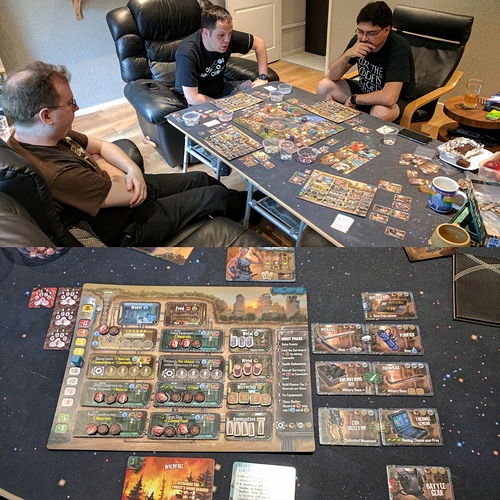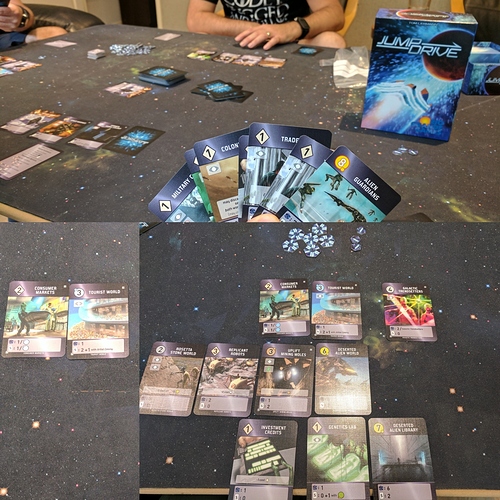Tom’s front-page review of Dead of Winter almost three years ago was the beginning of my interest in board games more complicated than Settlers of Catan. It’s been a slow process, because I haven’t looked into any local meet-ups or gaming groups; everything I try out I’m also having to pitch to my also-not-really-board-gamer friends. It’s working though, even friends who eye a “complicated zombie board game” with skepticism—“there are how many dice?!”—have been won over and are subsequently open to taking more chances on games.
Discovery is still tricky on my part though. Sheriff of Nottingham and Dixit were both very well received suggestions from this thread, and I’ve got another dozen titles tentatively on my wishlist, but as a novice it’s still very hard to judge what I’m going to enjoy, and even trickier to know what will land well with my friends. I don’t have the context for some of the comparisons, I don’t know how most of your tastes jibe with mine, and I don’t even understand some of the descriptions (@Sharpe, what’s “Euro scoring”, and how will it be affected by Brexit?).
All that to say that picking a recommendation from this thread is a bit of a gamble and I can’t usually even articulate exactly what catches my eye, but I took a chance and picked up Unfair last week and I’m glad I did!
Any game that doesn’t involve a fantasy theme gets a +1 to enticing friends, so that was part of the appeal, but beyond that I didn’t understand how the game was played or anything, I just liked Sharpe’s enthusiasm.
My first and only game so far was last night with four other players. None of us had ever played, and in this case I hadn’t even tried to figure it out in advance. We just went through the manual together and jumped in. Plenty of early confusion, plenty of regrets as some systems crystallized only in hindsight, but I loved the game, and I think everyone else would at least like to try it again now that they understand it.
Maybe my favorite part is just how cleverly designed the cards are. I don’t know if there’s a term for this, but the way the cards physically connect (or don’t) via the ribbon design that stretches from the attraction up through the upgrades (and maybe stops with a flagpole) seemed brilliant to me. The information you need to know when you play the card is hidden later once it’s tucked under the cards below, but everything you need to know going forward is still clearly visible in that small area left showing. Or in the case where there’s ongoing relevant info, they break up the ribbon design on the card so it’s clear that you need to leave the entire card visible. That really scratched some design itch I didn’t know I had.
The humor in the game is understated but enjoyable too. I really hope I can find more opportunities to play this one, thanks for the recommendation!
And speaking of not knowing exactly what I want from a game, I’m not sure Scythe is for me after I shrugged off the take-over-the-map style of the Game of Thrones game, but holy cats, this game looks beautiful. I think I’m buying this just to look at.

